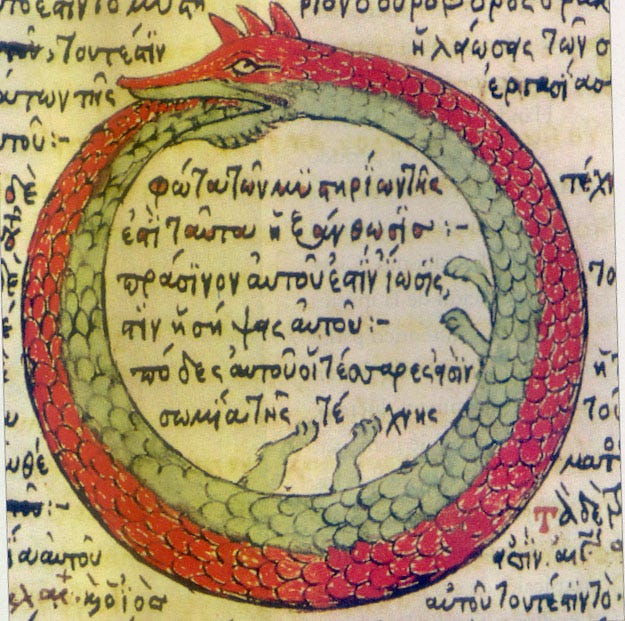Above from below, below from above
A spring meditation on the stars and new beginnings; a chance to win five signed novels about historical witches
Hello, friends—
Happy Spring! I’ve been thinking about the stars and new beginnings this week. The vernal equinox was on Monday, and with it, the sun passed into Aries, the first sign of the Zodiac. The new moon—another time of reset and transformation—was on Tuesday. By the Julian calendar, the one used in Elizabethan England where my current novel is set, the new year wouldn’t begin until Saturday, March 25.
Winter is ending. Grass is growing. Leaves are budding. Flowers are blooming. Ants are trying to get into my house…
In my novel, Mistress, the main character—Shakespeare’s Dark Lady—is an astrologer. Rose believes, like many Elizabethan-era occultists, in a deep connection between our world and the heavens. Superiora de inferioribus, the ancient Emerald Tablet states, inferiora de superioribus. Here’s the version of the famous alchemical tract that Rose might know, translated into English:
“That which is above is like to that which is below,
and that which is below is like to that which is above,
to accomplish the miracles of one thing.
And as all things were by contemplation of one,
so all things arose from this one thing by a single act of adaptation.
The father thereof is the Sun, the mother the Moon…”
—The Emerald Tablet, tr. Robert Steele and Dorothea Waley Singer
Elizabethan astrologers saw the stars as influences on our personalities and instincts, swaying our inner lives like the moon sways the tide. Not a deterministic template that foretold one’s temperament completely, but a complex system of influences that built upon environmental factors like inherited traits, ancestry, and wealth. In other words, they thought the stars influenced rather than defined us. We could even struggle against them…
“The fault, dear Brutus, is not in our stars
But in ourselves, that we are underlings.”
—Julius Caesar, Act I, Scene III, L. 140-141
Rose sees the stars as fragments of the human psyche, scattered—like pennies, or the shards of a broken vase—across the sky. She would say the sun’s transit through Aries heightens our foolishness, our pioneering spirit, our overconfidence and pride. Our minds prance out of the dark like sheep from a winter barn, giddy at the warming weather, ready to begin the new astrological year.
I never understood ouroboros growing up, but as an adult, the seasons have become dizzying. Time passes more quickly as you get older; your own childhood memories become blurry, indistinct.
If you’d like more witchcraft in your life, I’m doing a Women’s History Month giveaway with four other novelists whose books explore the history of women’s magic. The winner will receive signed copies of our novels, all of which are about witches from history and myth. It only takes a moment to enter.
I wish you the best this spring, as we all prance out of the winter barn into new green pastures. I plan to spend the season deep in the world of Mistress, where Rose is in the midst of her intense affair with Shakespeare.
Warmly,
Mary




